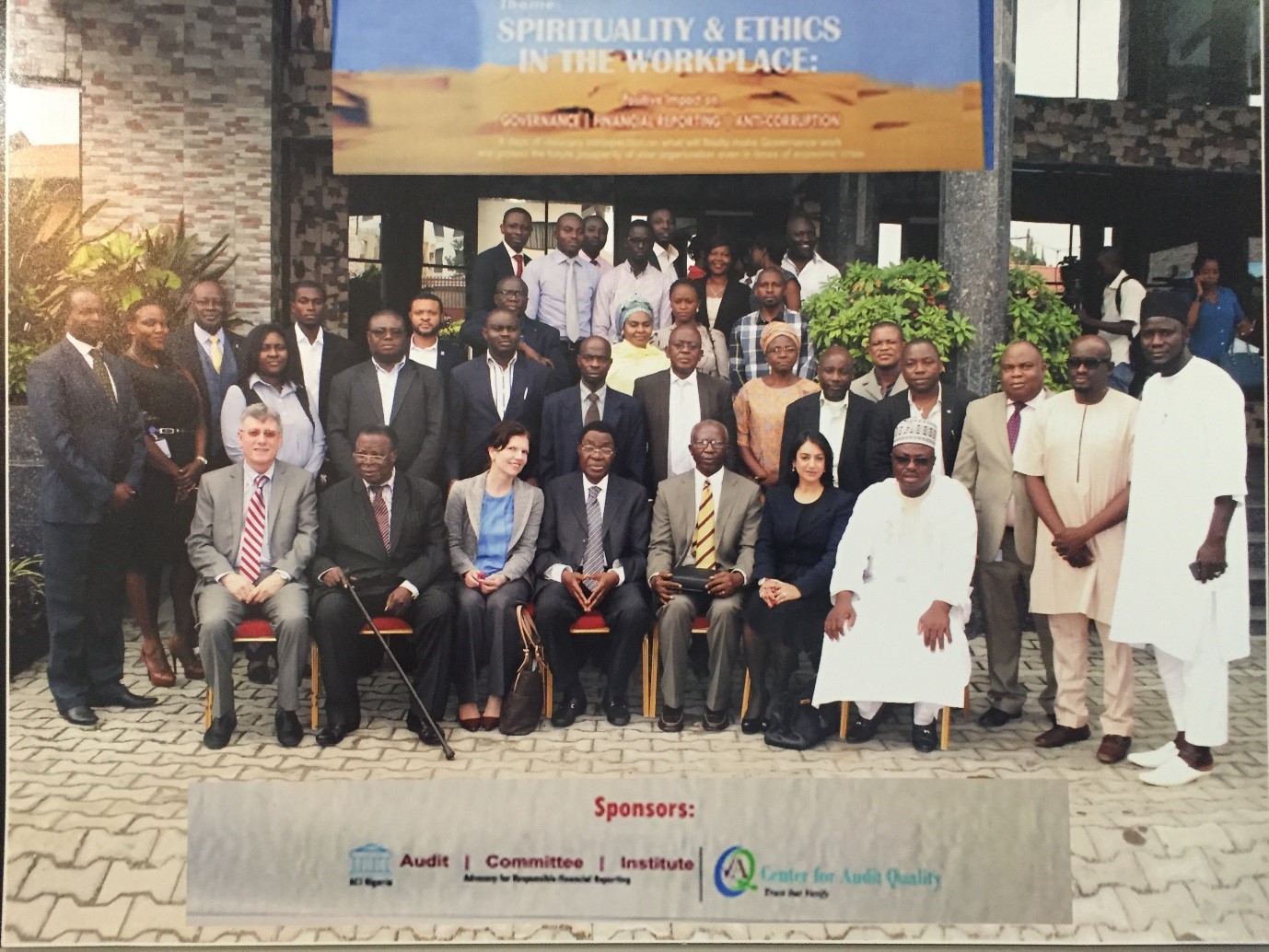I recently was invited to be a keynote speaker and conference participant at the 2016 Audit Committee Institute Conference in Lagos Nigeria. What I discovered during my visit is that Nigeria is a paradoxical nation of contrasts. It has the highest percentage intellectual class in Africa and, as evidenced by several of the attendees, an education system that can allow a person from a tribal upbringing to join this elite through hard work and initiative to reach the highest levels in society. It is also a very religious country where it seems like there’s a church or mosque on every corner and a very high percentage of the population attends religious services weekly. It also has tremendous natural wealth and resources. Yet Nigeria is also one of the most poor, corrupt and dangerous countries on earth. My sponsor warned us to not go out without our driver/body guard due to the threat of being kidnapped. As we drove around we noticed numerous half completed building standing idle, including the new international airport terminal. We were told that this is because the constructions funds had been stolen mid-project so that it could not be completed. An airport policeman carrying an AK 47 offered to escort us safely to our baggage drop for “a small amount of dollars.”
Against this backdrop was the conference with the theme “Spirituality & Ethics in the Workplace: Positive Impact on Governance, Financial Reporting, and Anti-Corruption.” The conference organizer and our sponsor, Christian C. Ekeigwe FCA, CPA, CISA, believes that workplace spirituality and spiritual leadership are the missing links to ethical governance. When these become foundational, politicians, government officials and company employees would not prey on the vulnerabilities of society, organizations and humanity for self-enrichment. Organizations with this focus have the potential to unleash productivity in the work place, by eliminating the need for inefficient, burdensome, costly control processes, and liberating profitability from the clutches of human errors, fraud and corruption.
I and IISL president Dr. Eleftheria Egel spent four days as part of this effort. We made several presentations and conducted workshops on organizational spiritual leadership, its measurement and using it for organizational transformation, personal spiritual leadership and personal mission statements, as well as introducing the spiritual leadership model as a model for Islamic leadership that will soon be published in Public Integrity. The latter was particularly well-received as Nigeria is predominately Christian in the south and Muslim, with its problems with Boco Haram, in the north.
My main takeaway from all this is that here is a country, religious indeed, totally fed up with the current state of affairs and seeking new approaches for positive change. Part of this has been the election of a president who is committed to such reforms. However, as we say repeatedly wherever we are called to go, this change will never take place at the national or geopolitical levels. No, it must start through the efforts of courageous men like Mr. Ekeigwe who work to create a context whereby such a transformation can take place one person, one team, and one organization at a time. My purpose, both as a professor of management and leadership at Texas A&M University Central Texas and as the founder of IISL, is to go where called and plant the seeds of the leadership that will bear the fruits of the spirit through loving and serving others to produce the critical mass for explosive change necessary to co-create a conscious, sustainable world that works for everyone.
From this place all things are possible.

